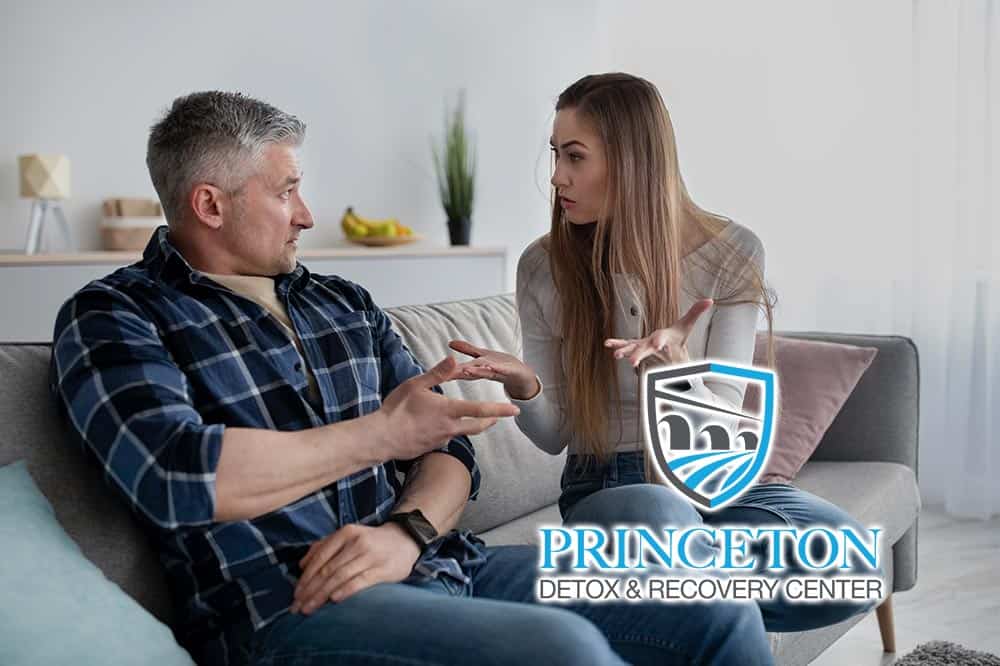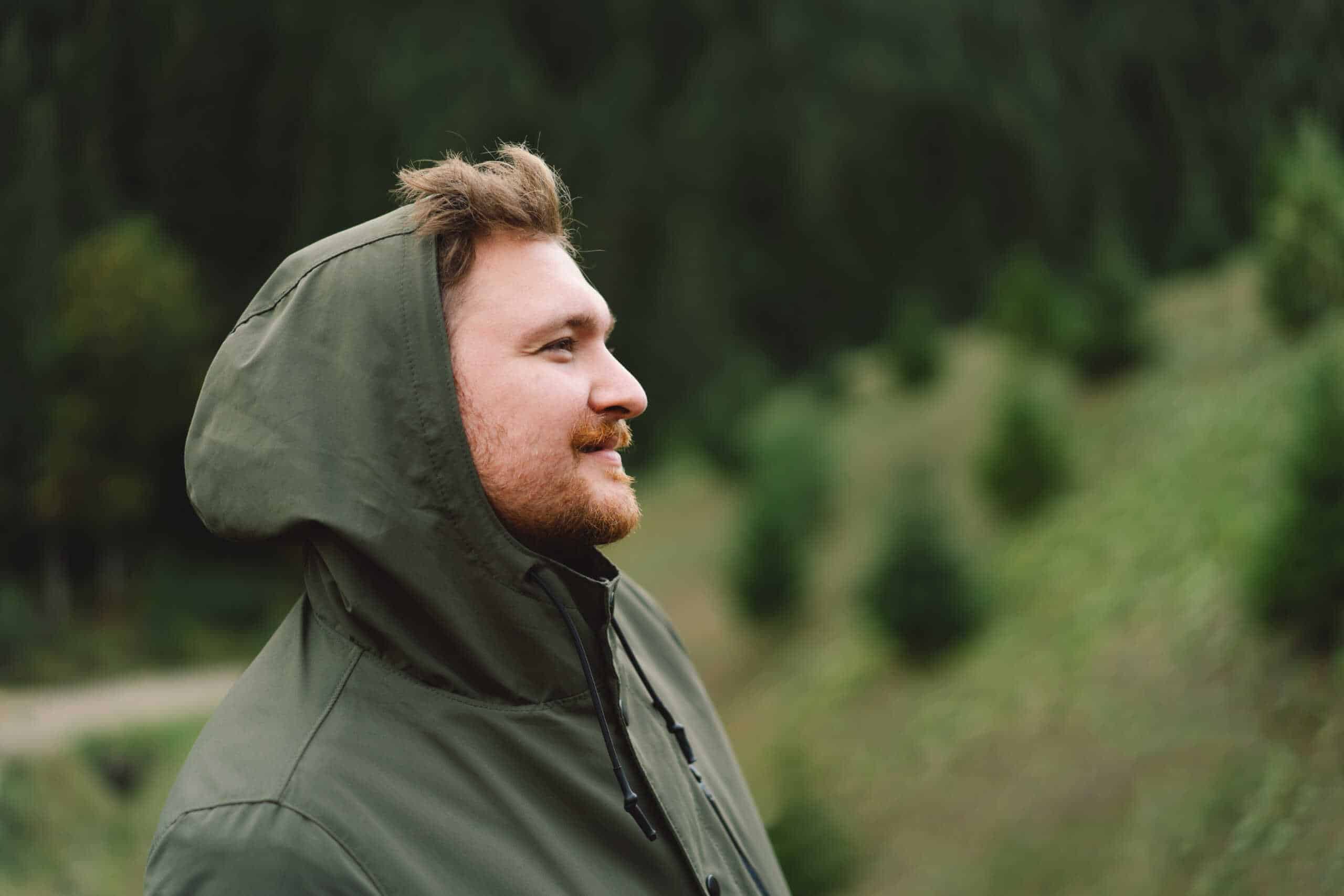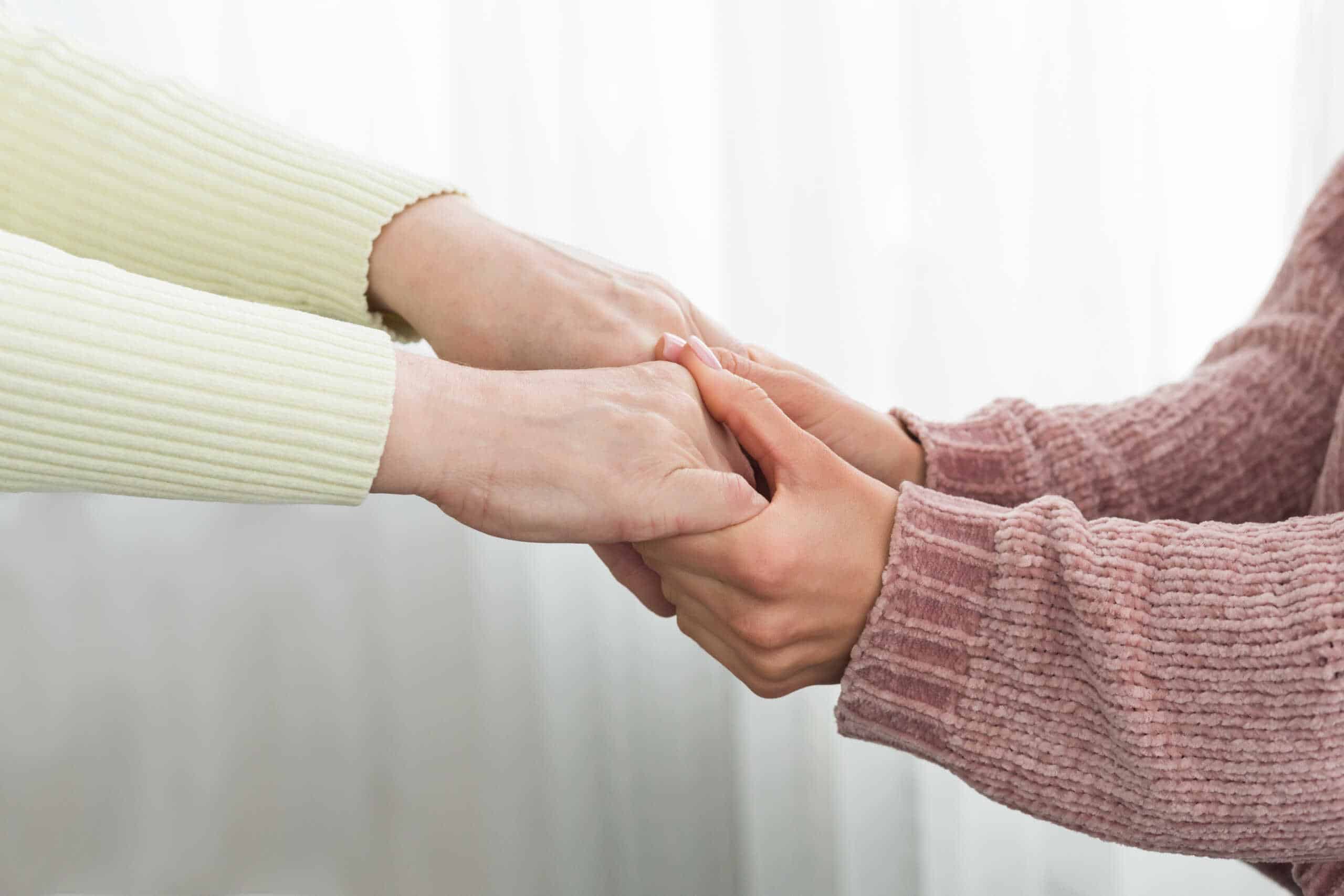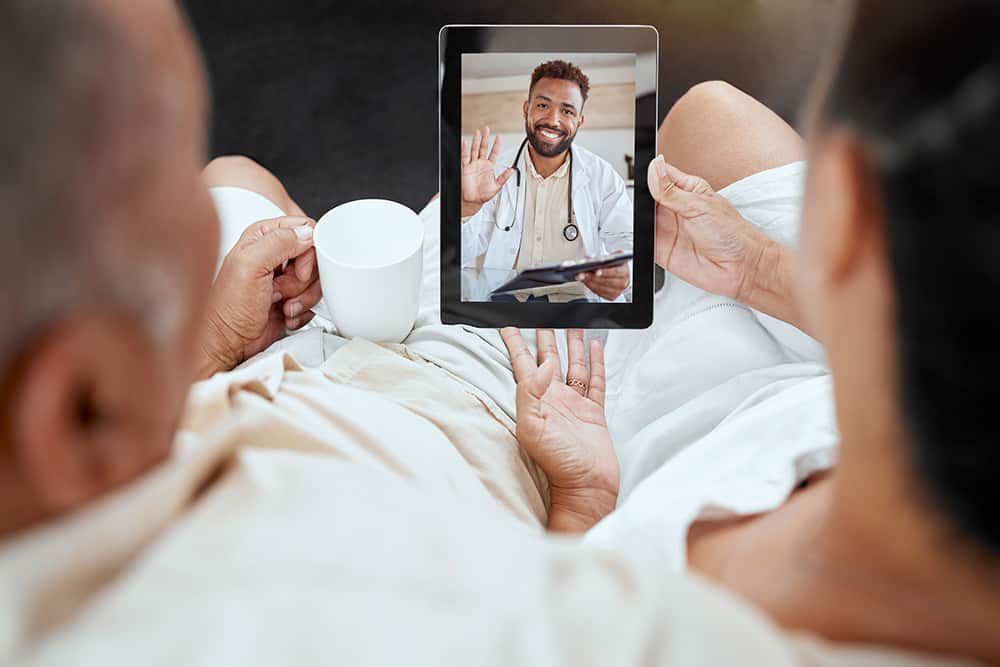How to Recognize Vicodin & Signs of Abuse
Vicodin Pill Identifier
Vicodin is an opioid narcotic painkiller most commonly used for the treatment of moderate or severe pain. Vicodin is made from a combination of hydrocodone, a habit-forming opioid, and acetaminophen, an over-the-counter pain reliever and fever reducer. Because this specific medication has such a high potential for abuse, it is rarely prescribed to be taken for more than several weeks at a time (usually after a major surgical procedure). Over the course of the past decade rates of prescription painkiller abuse have skyrocketed across the U.S. According to the National Institute on Drug Abuse, nearly 50,000 people died from opioid-related overdoses in the year 2019 alone. While many of these overdose deaths directly involved heroin and/or fentanyl, a significant number were attributed directly to prescription pain pills like Vicodin.
If you believe someone you love has been abusing Vicodin or any other opioid narcotic painkiller, you might be wondering what to keep an eye out for. How do you know if someone has been abusing Vicodin if they were initially prescribed the medication for a legitimate medical reason? How will your loved one act if they have been abusing prescription pills? What does Vicodin look like? At Princeton Detox & Recovery Center we help people of all ages and walks of life undergo a safe and pain-free Vicodin withdrawal while actively preparing them for long-term success in sobriety. To learn more about pain pill addiction or to learn about our integrated medical detox program, contact us today.
What Does Vicodin Look Like?
Vicodin is a narcotic analgesic combination, most commonly used to treat acute pain which might be experienced following an invasive surgical procedure or a sports injury (or any other accidental injury). Most people who are prescribed Vicodin by a medical professional are given a relatively low dose and a short supply. This is because taking Vicodin for any longer than two or three weeks can easily lead to physical and psychological dependence. If someone you love received a Vicodin prescription and has been taking the medication at a higher dose than recommended, more frequently than recommended or for longer than recommended, they might be struggling with a Vicodin abuse disorder. If you have seen small, white, oval tablets stashed in your loved one’s bedroom, they might be attempting to hide a prescription painkiller abuse issue. What exactly does Vicodin look like?
The image to the right depicts what standard Vicodin pills look like. The pills or tablets are typically oval in shape and white in color. A standard dose of Vicodin contains between 2.5 mg and 10 mg of hydrocodone and between 300 mg to 750 mg of acetaminophen. The pills are taken every 4 to 6 hours depending on pain level, and Vicodin might also be available in liquid form (though white tablets are prescribed much more frequently).
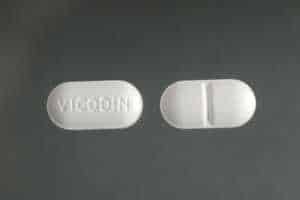
We Are Here For You
Let Us Help You Heal
Our Drug & Alcohol detoxification experience is second to none.
Learn how we can help by speaking with one of our Treatment Advisors today.
What are the Different Types of Vicodin?
There are three distinct types of Vicodin which are commonly prescribed: Vicodin, Vicodin ES and Vicodin HP. The main difference between these three types of Vicodin is the amount of hydrocodone present in the pill.
- Vicodin – Standard Vicodin contains 5mg of hydrocodone barbiturate and 300 mg of acetaminophen. Hydrocodone can be habit-forming, and while acetaminophen itself does not lead to addiction it can result in a range of health-related issues when taken in greater quantities than intended for a longer period of time than recommended. Liver damage can occur. The standard adult dosage is one or two tablets every four to six hours as needed. The total daily dosage should not exceed 8 tablets.
- Vicodin ES – This type of Vicodin includes 7.5mg of hydrocodone barbiturate and 300 mg of acetaminophen. The standard adult dosage is one tablet every four to six hours as needed. The total daily dosage should not exceed 6 tablets.
- Vicodin HP – This type of Vicodin includes 10mg of hydrocodone barbiturate and 300 mg of acetaminophen. The standard adult dosage is one tablet every four to six hours as needed. The total daily dosage should not exceed 6 tablets.
How to Tell if Someone is Abusing Vicodin
How can you tell if someone you love has been abusing Vicodin or another prescription painkiller? Perhaps your loved one has been acting strange as of late; sleeping long hours, failing to participate in activities which were previously enjoyed and spending less time with friends and family. If you have noticed several red flags and you want to be sure your suspicions aren’t totally off-base before approaching your loved one about substance abuse, there are several telltale symptoms of addiction to keep an eye out for.
Your Loved One Might Be Abusing Vicodin If:
- They engage in drug-seeking behavior, which might include raiding medicine cabinets for unused or expired prescriptions, purchasing more Vicodin from a drug dealer, constantly “losing” their medication in order to get more or “doctor shopping” — visiting more than one doctor in an attempt to obtain more than one written prescription at a time.
- They have been taking Vicodin in higher doses than recommended for a longer period of time than intended, despite repeated efforts to cut back or quit entirely.
- They have been neglecting personal responsibilities and their performance at work or at school has been suffering as a result of their Vicodin use.
- They haven’t been paying attention to personal hygiene (for example, showering more infrequently, wearing the same clothes for more than a day or not putting on makeup or styling their hair the same way they used to).
- They sleep strange hours and their eating patterns have recently changed, either leading to noticeable weight gain or weight loss.
- They have been engaging in risk-taking activities like driving after taking a high dose of Vicodin or combining the pain medication with other chemical substances like alcohol.
Why Do People Use Vicodin?
The reason why a person begins misusing Vicodin depends on the person. Some people might accidentally develop a psychological dependence after the medication is prescribed for a legitimate medical reason. Others might begin abusing Vicodin in an attempt to self-medicate an underlying mental illness or unresolved trauma. At Princeton Detox & Recovery Center we work on identifying and treating all underlying issues, tackling addiction at the root cause.
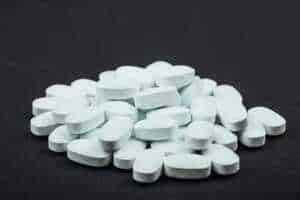
Ready To Begin Your Detox?
Don’t let addiction control your life.
Call us today and let’s get you started on the path to a better you.
How to Help Someone Who is Abusing Vicodin
If you believe someone you love has been struggling with a Vicodin abuse disorder, what steps can you take to intervene? At Princeton Detox & Recovery Center we understand how difficult it can be to help a loved one who is struggling with addiction, especially if your loved one believes they can overcome the issue on their own. We recommend thoroughly educating yourself on addiction as a first step. This allows you to approach the situation with understanding and compassion rather than frustration and anger. We also recommend helping yourself — whether that means joining a support group for the loved ones of addicts and alcoholics or seeking individual therapy. If you feel comfortable doing so, consider sitting down with your loved one and presenting viable treatment options. Express your concern without judgement, and let them know help is available should they choose to seek it.
Best Treatment for Vicodin Addiction
If your loved one repeatedly refuses help a professionally staged intervention might be in order. At Princeton Detox & Recovery Center we offer crisis intervention services to those in need. Once your loved one agrees to seek treatment we recommend entering into a medical detox program for between three days and two weeks, depending on the severity of the substance abuse disorder. Because psychological drug cravings can be so overwhelming during the first few weeks of sobriety, inpatient detox is an ideal first step. We offer aftercare planning services so your loved one can immediately transition into a higher level of clinical care once they have been physically stabilized.
Contact Us Today to Begin
At Princeton Detox & Recovery Center we understand how difficult it can be to watch a loved one struggle with an addictive disorder of any type or severity. Many of our staff members have been exactly where you are now, and have helped a loved one through the early recovery process themselves. Because those who struggle with addiction often find themselves stuck in a place of denial, crisis intervention services can be extremely beneficial when it comes to getting the ball rolling. If your loved one refuses professional help despite an apparent need we are happy to put you in touch with an experienced interventionist in your immediate area. As soon as you or your loved one is ready to reach out for help, we will be here. Our medical detox program offers much more than a safe and pain-free Vicodin withdrawal. We provide our clients with a range of addiction treatment services geared towards preparing them for continued success in sobriety. In addition to medical detox services we offer addiction assessments, case management services, individual, group and family therapy sessions and personalized aftercare planning. All you have to do is contact us and we will take care of the rest.

Reviewed for accuracy by:
Amanda Hilzer M.Ed, CAADC, IADAC, ICCS, LCADC, CCS
Amanda graduated from Lehigh University with both an undergraduate degree in Psychology and a Master’s of Education degree in Counseling Psychology and has worked in the field of substance use disorder treatment and mental health treatment as a counselor and as a clinical manager for over 14 years.














